James of Mythic Fantasy takes aim at the doctrine of combat as fail state. I agree with the sentiment, especially contra the strong position that getting into combat always indicates poor playing. That said, combat can be tedious and boring, particularly if repetitious or lacking distinct circumstances.
This is engaging combat:
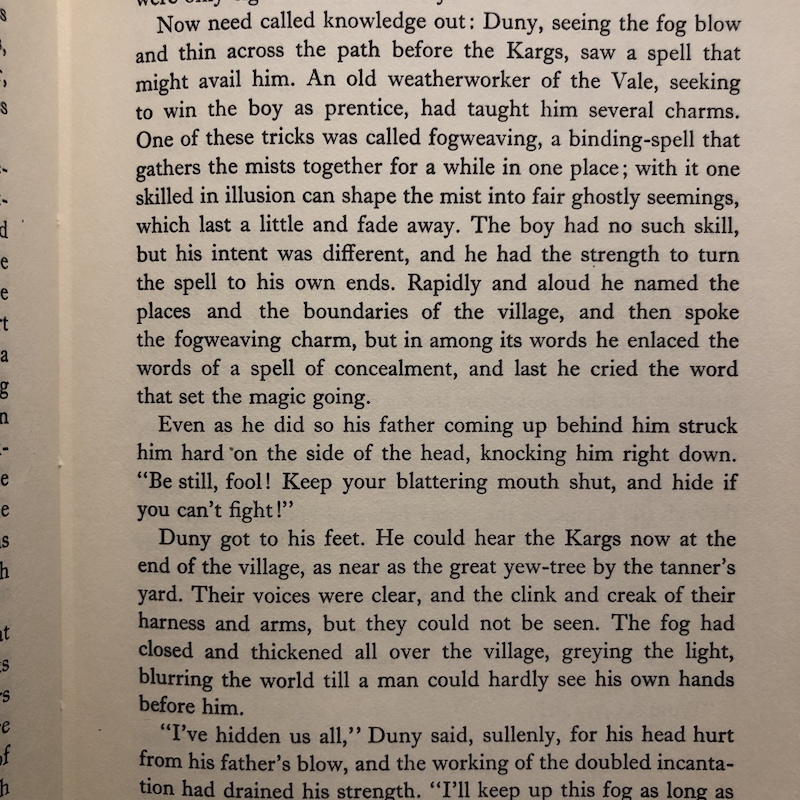
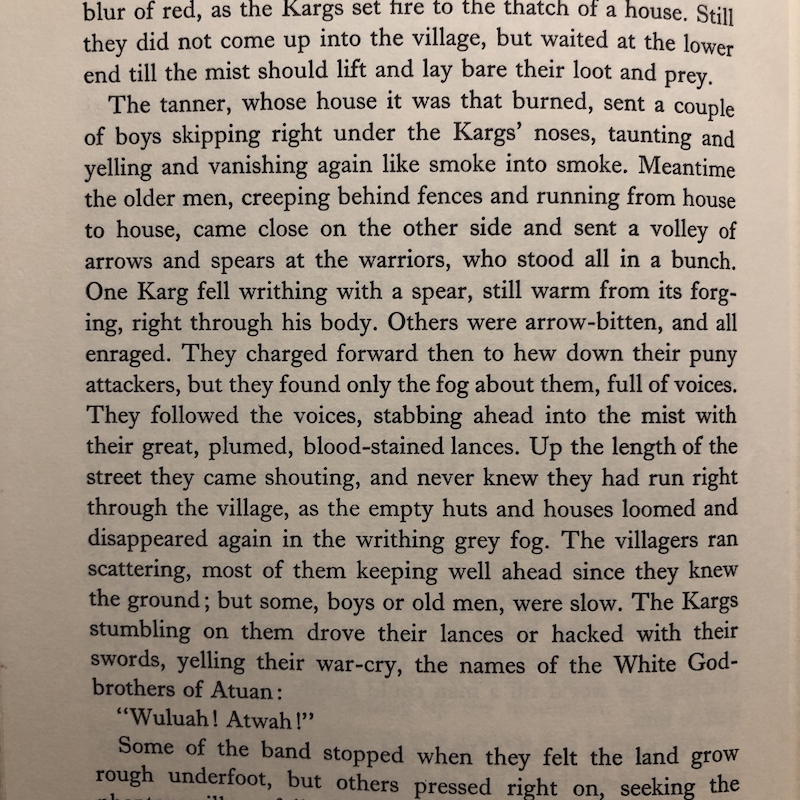
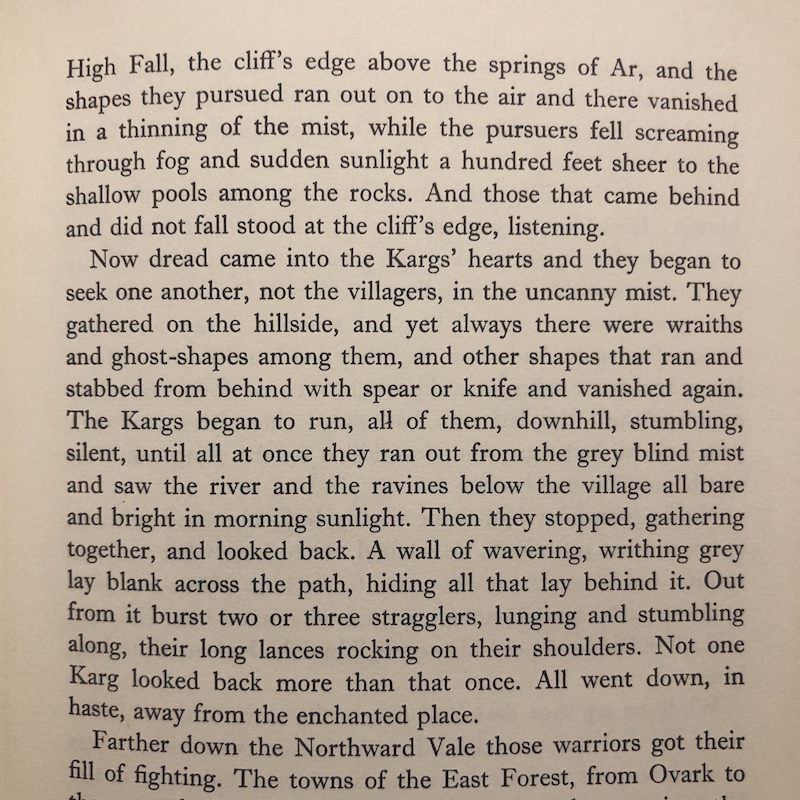

The D&D equivalent: showdown against 30-300 bandits with a fog spell and some tactics.
(I imagine someone may object that Ged’s spell is more powerful than fog cloud. Well, of course. Ged is the the future archmage of all Earthsea. You go to war with the army you have.)
Also: remember to use morale rules.
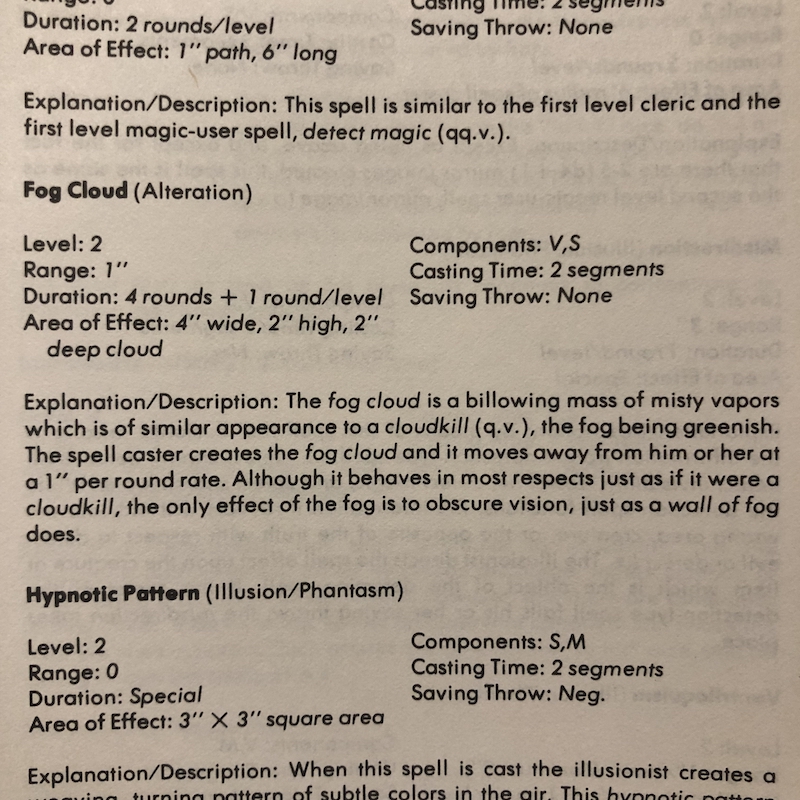
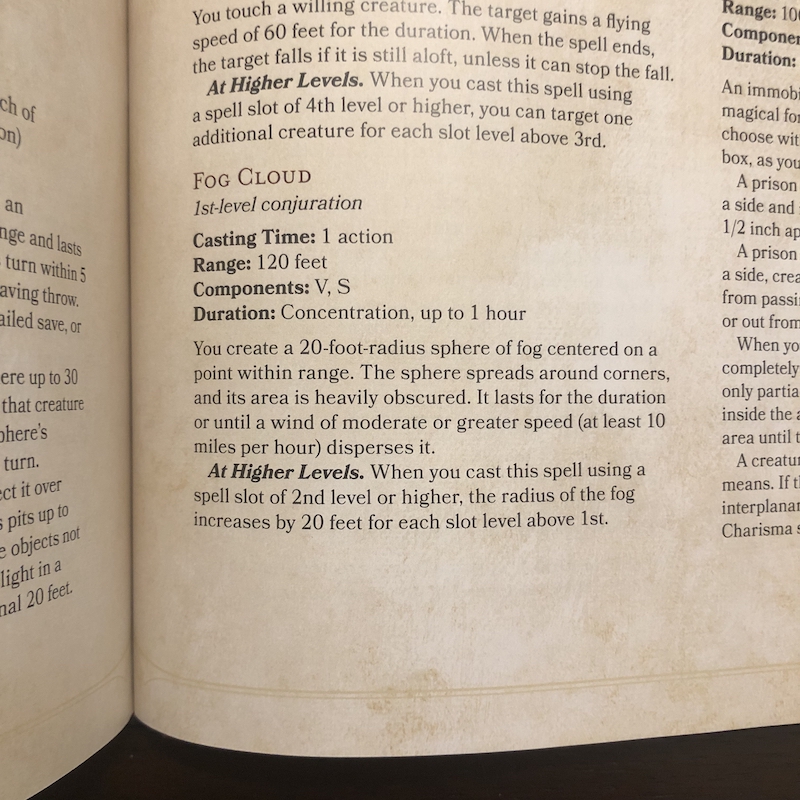

Combat isn’t a fail state. That is true. Sometimes I am guilty of speaking imprecisely. I think other people are, too.
Let me try to formulate this well.
Combat is one of the most statistically-likely ways to have your paper man die. This suggests two things: one is that engaging in it indiscriminately means less chance of advancement; and the other is that succeeding in a test of combat is exciting, and that excitement is fun to experience and talk about later.
Rather than say it’s a fail state, say that it is a high-risk proposition. High risk, high reward.
I’ve found the thing that helps the most is to make it so that most combat can be avoided, especially by talking, but making some monsters/NPCs in some manner obnoxious enough my players just actively want to dispose of them. It’s more cathartic in that manner. Other times, I’ll have rewards posted for dispatching certain enemies (a wyvern, etc.) so there’s an incentive. For bigger obstacles, such as “true” monsters where mutual understanding is impossible, I like to telegraph things in advance and leave clues for resolving the obstacle – I know my players, at the very least, get really excited when they say, “Wow, I’m glad we did X, because otherwise we would have gotten killed!” or even “If only we had figured out X earlier, then we might have stood a chance!”.
But, this also comes with the caveat that my players (1) enjoy fighting big, dangerous monsters; and (2) like making negotiations and deals with other sorts, especially to turn them against each other. So for a hypothetical group that likes mowing down waves of smaller threats, and hates any sort of in-character negotiation, I’m not sure if it would translate as well?
That’s a great scene. Morale checks have been important for my table.
Interesting that AD&D’s fog cloud spell leans on its resemblance to cloudkill. At 4x2x2 ft you can’t even obscure a full passageway, or any but the shortest elves. I suppose anybody would be nervous about green fog, but if we assume the enemy doesn’t know what a cloudkill spell looks like, then I can’t imagine the need for a morale check.
The same thing jumped out at me: there’s a sort of “hidden feature” in this spell, although it’s explicitly called out in the text. Savvy adventurers (and monsters!) might find that the spell’s bluff potential is more useful than its assumed function (to could vision).